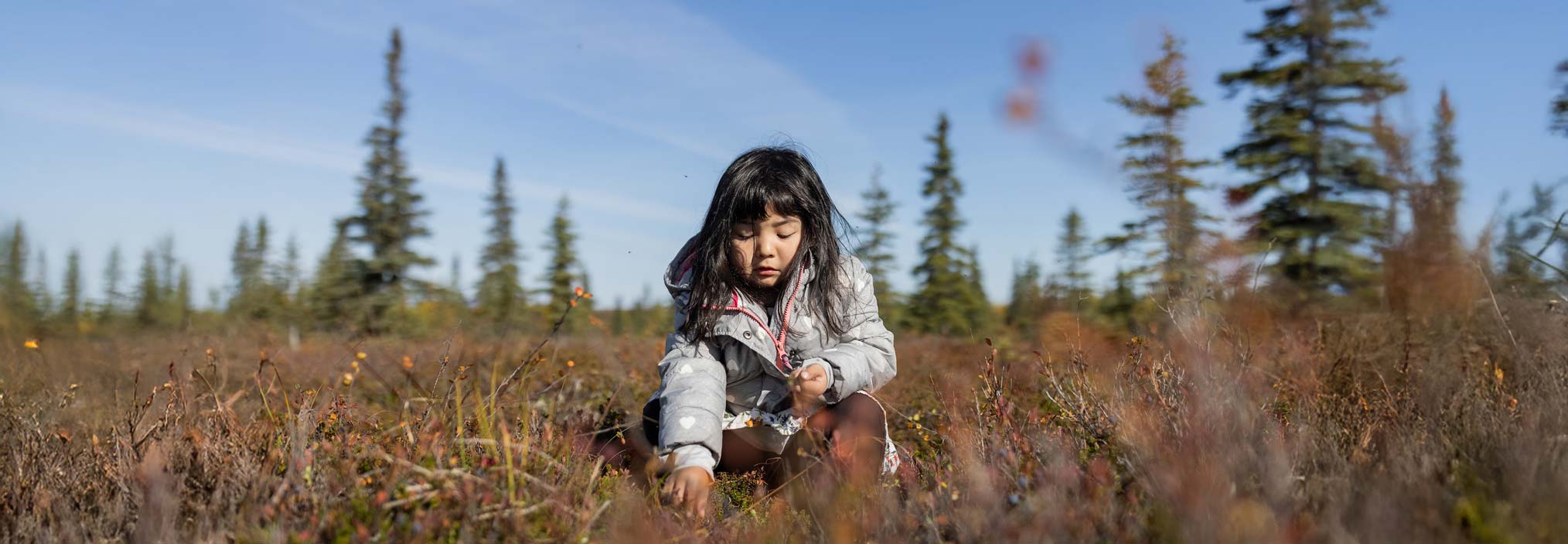John Palfrey, MacArthur President, shares the two-year process of listening, learning, and unlearning that led to our new program on Native self-determination.
When we began considering new areas of work in 2022, one theme came up again and again in conversations with our Staff and Board: the well-being, strength, and future of Indigenous communities.
MacArthur has supported Indigenous communities through various programs, including our Equitable Recovery Initiative that provided $17 million to support self-determination of Indigenous Peoples in 2021. Yet it is evident that we can do more, and we can do better.
True and lasting impact requires more than just financial support; it demands deep, meaningful engagement with Native leaders and communities. It requires listening more closely, ensuring their insights and feedback shape our strategies, and approaching this work with humility, respect, and accountability. It calls for reflection and changes within our Foundation, including fostering greater inclusivity, infusing Native perspectives across all programs, and ensuring our actions reflect trust and reciprocity.
True and lasting impact requires more than just financial support; it demands deep, meaningful engagement with Native leaders and communities.
With the introduction of our new program on Native self-determination, we are deepening our long-term commitment to Indigenous Peoples. In addition to increasing our financial support, we will listen, build stronger relationships, and work in ways that reflect the leadership and values of Indigenous Peoples.
Our ambition is to look to Native leaders for guidance, recognize that they know their communities’ needs best, and demonstrate trust in organizations and people. We are also committing to be in community with other funders so we can learn from their experiences and share our own lessons. We are establishing an advisory council and will hire a Director to ensure people with relevant experience and perspectives are guiding and leading this work.
With these commitments in mind, today we are sharing the two-year process of listening, learning, and unlearning that led to our new program.
In 2023, as we considered new areas of work, we began researching and asking the questions “how can MacArthur best support Native communities’ well-being?” and “how can philanthropy meaningfully and effectively work in partnership with Indigenous leaders and communities?”
Our ambition is to look to Native leaders for guidance, recognize that they know their communities’ needs best, and demonstrate trust in organizations and people.
Our process of listening and learning included a commissioned report examining funding trends; a gathering of 18 Indigenous leaders in Spring 2024; 24 in-depth interviews; and over 100 informal conversations with Indigenous traditional knowledge holders, academics, artists, scientists, and entrepreneurs, among others. The findings both from research and consultations were clear.
Philanthropy is not adequately supporting Native communities. Eddie Sherman, Diné | Umóⁿ’hoⁿ, of Against the Current Consulting found that only five cents of every 100 dollars in philanthropy is going to Native communities in the United States. This is based on 2021 data, the most up-to-date available.
“For generations, Native communities have led with resilience, vision, and self-determination—despite being persistently sidelined by philanthropy,” said Sherman. “This report sheds light on how little funding is reaching Native communities. But it also lifts up the extraordinary leadership, innovation, and opportunity that exist in every corner of Indian Country.”
As we continued our period of listening and learning, we moved $8 million to Indigenous community-driven initiatives to show that we are serious about changing our relationship with leaders and communities.
But being in relationship with Native communities requires foundations to do more than increase financial support; we also need to change how we work internally and externally. Specifically, the Indigenous People who contributed their ideas and perspectives asked that MacArthur and other funders:
- Make a clear, long-term commitment to support issues that are important to Indigenous well-being and encourage other funders to do the same;
- Trust in and hold ourselves accountable to Indigenous communities; and
- Expand representation of people with lived experience and community connections in funding institutions, including here at MacArthur.
“At the gathering, I was humbled to be in community with Native leaders who are driving powerful work across Indian Country,” said Stephanie Zadora, Seneca, Operations and Programs Director of Native Ways Federation. “Native-led nonprofits hold the solutions and just need the trust and resources to move them forward.”
“This is about building genuine, long-term relationships based on trust and accountability–where Indigenous voices are not just heard but are at the forefront, leading the way.”
Major priorities also emerged from conversations with Native leaders. They expressed the need for resources related to land and language; agency and autonomy; community power building; and recognition of sovereign rights. Read the full report on what MacArthur heard from Native leaders.
“Indigenous brilliance is at the heart of this work, and the Foundation’s willingness to recognize and center that brilliance is essential,” said Wanda Brascoupe, Skarù rę’, Kanien’keha, Anishinabe, and Nicole McDonald, Métis, co-founders of Indigenous Philanthropy Advisors. “This is about building genuine, long-term relationships based on trust and accountability–where Indigenous voices are not just heard but are at the forefront, leading the way.”
Our new program is still in the early stages. We will develop a strategy once we have Staff and an advisory council fully in place, so our long-term grantmaking is informed by the experiences and perspectives vital to this program. Our period of listening and learning has left me energized for the work to come, and we look forward to sharing more with you along the way.




